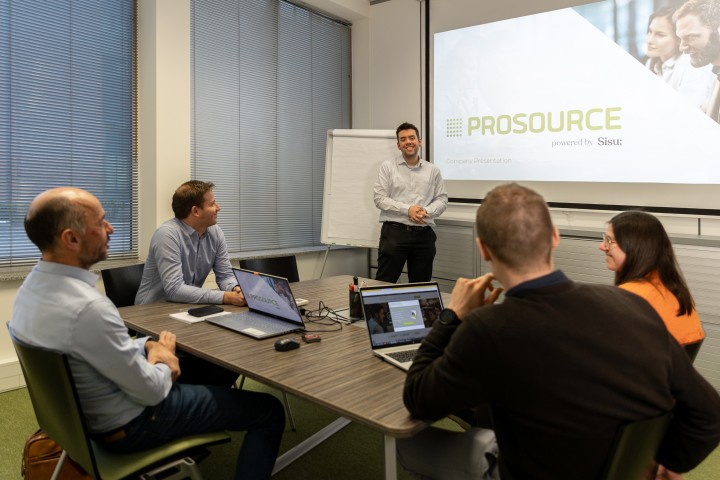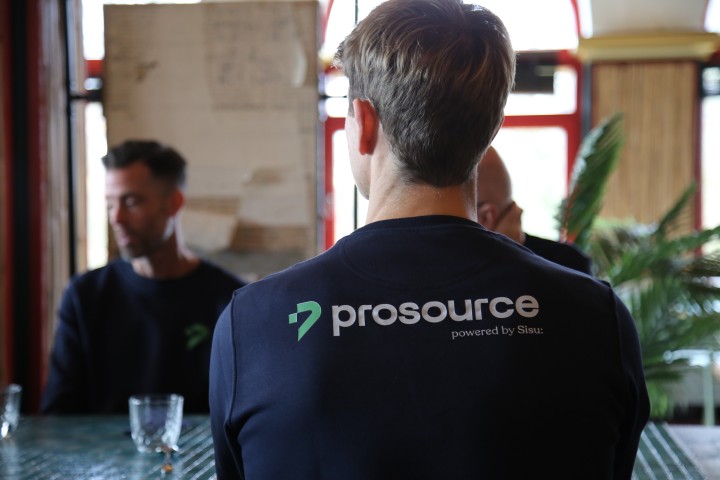Why Defining Projects And Project Management Is So Important
-
Insight
-
Project Management
For project management to be successful, it is critical to first define what projects and project management are. In this blog, we'll take a deep dive into why defining projects and project management is so important.
WHY DEFINING PROJECTS AND PROJECT MANAGEMENT IS SO IMPORTANT
Project management is the application of knowledge, skills, tools and techniques to activities in a project to meet the requirements of the project. It is essential to ensure that projects are delivered on time, within budget, and to the satisfaction of stakeholders. For project management to be successful, it is critical to first define what projects and project management actually are.
WHAT IS A PROJECT?
A project is a temporary endeavour undertaken to create a unique product, service or result to fulfil certain objectives. It is typically divided into smaller work packages that are coordinated and managed to achieve the overall project goal.
Projects drive change within an organisation and enable it to create business value. They are often initiated to implement or change business strategies, solve a problem, create a new product or service, improve an existing process or meet certain legal or regulatory requirements. They are characterized by their defined scope, timeline, and budget, and are managed using project management methodologies and tools.
Here are some examples of projects in different departments and branches:
- Marketing: Launching a new product line for a food brand.
- Healthcare: Implementing a new electronic health record system for a hospital.
- Software Development: Developing a new mobile application for a client.
- Research: Conducting a study on the effectiveness of a new drug for a pharmaceutical company.
- Event planning: Organising a music festival for a local community.
- Film production: Producing a documentary about climate change for a streaming platform.
- Transportation: Building a new subway line to improve public transportation in a city.
- Construction: Building a new office complex for a multinational corporation.
- Education: Developing an online learning platform for a university.
-
Non-profit: Establishing a community garden to promote sustainable agriculture and healthy eating habits.
HOW DOES A PROJECT DIFFER FROM A PROCESS?
A project differs from a process in several ways:
- Unique vs. Repetitive: A project is an endeavour with a specific and unique result, product or service, whereas a process is a repetitive sequence of actions that are performed regularly.
- Temporary vs. Ongoing: A project has a defined start and end date, while a process is ongoing and does not have a specific end date.
- Specific vs. General: A project is specific and targeted towards achieving a particular objective, while a process is a general set of steps that are followed to achieve a desired outcome.
- Risk vs. Stability: A project involves a higher level of risk and uncertainty (especially at the start) compared to a process, which is typically more stable and predictable.
In summary, a project is a temporary endeavour undertaken to create a unique product, service or result, while a process is ongoing and repetitively produces or delivers the same product, service or result.
WHAT IS PROJECT MANAGEMENT?
Project management is the application of knowledge, skills, tools and techniques to activities in a project to meet the requirements of the project and to achieve specific project goals and objectives.
The benefits of project management include improved project efficiency, reduced project costs, improved stakeholder satisfaction, and increased project success rates. Effective project management requires skills such as leadership, communication, problem-solving, and decision-making.
DOES A PROJECT MANAGER NEED SUBSTANTIVE EXPERTISE?
It is a common misconception that a project manager requires substantive expertise. For a project manager, it is important to know how to apply skills, resources, and processes to achieve the goal of the project. It is not necessary for a project manager to have a deep understanding of every aspect of the content. For that, they can rely on subject-matter experts to provide guidance and support.
WHY IT’S IMPORTANT TO START WITH DEFINING WHAT PROJECTS AND PROJECT MANAGEMENT ARE
Defining what a project and project management are, is important for several reasons:
- Clarity: It provides clarity on what a project is and what it entails. This helps to avoid confusion and misunderstandings among stakeholders.
- Scope: It helps to define the scope of a project and what is included within the project. This ensures that everyone is on the same page about what the project aims to achieve.
- Goals and Objectives: It helps to define the project goals and objectives, which are essential for measuring the success of the project.
- Stakeholder Management: It is essential for effective stakeholder management. By defining the project and project management, it is easier to communicate with stakeholders and manage their expectations.
- Planning: It is essential for effective project planning. Once the project and project management are defined, it is easier to create a project plan that outlines the scope, goals, objectives, timelines, and budget.
In summary, defining projects and project management is essential for effective communication, stakeholder management, project planning, and measuring the success of the project. It provides clarity on what the project aims to achieve and ensures that everyone is on the same page.




























